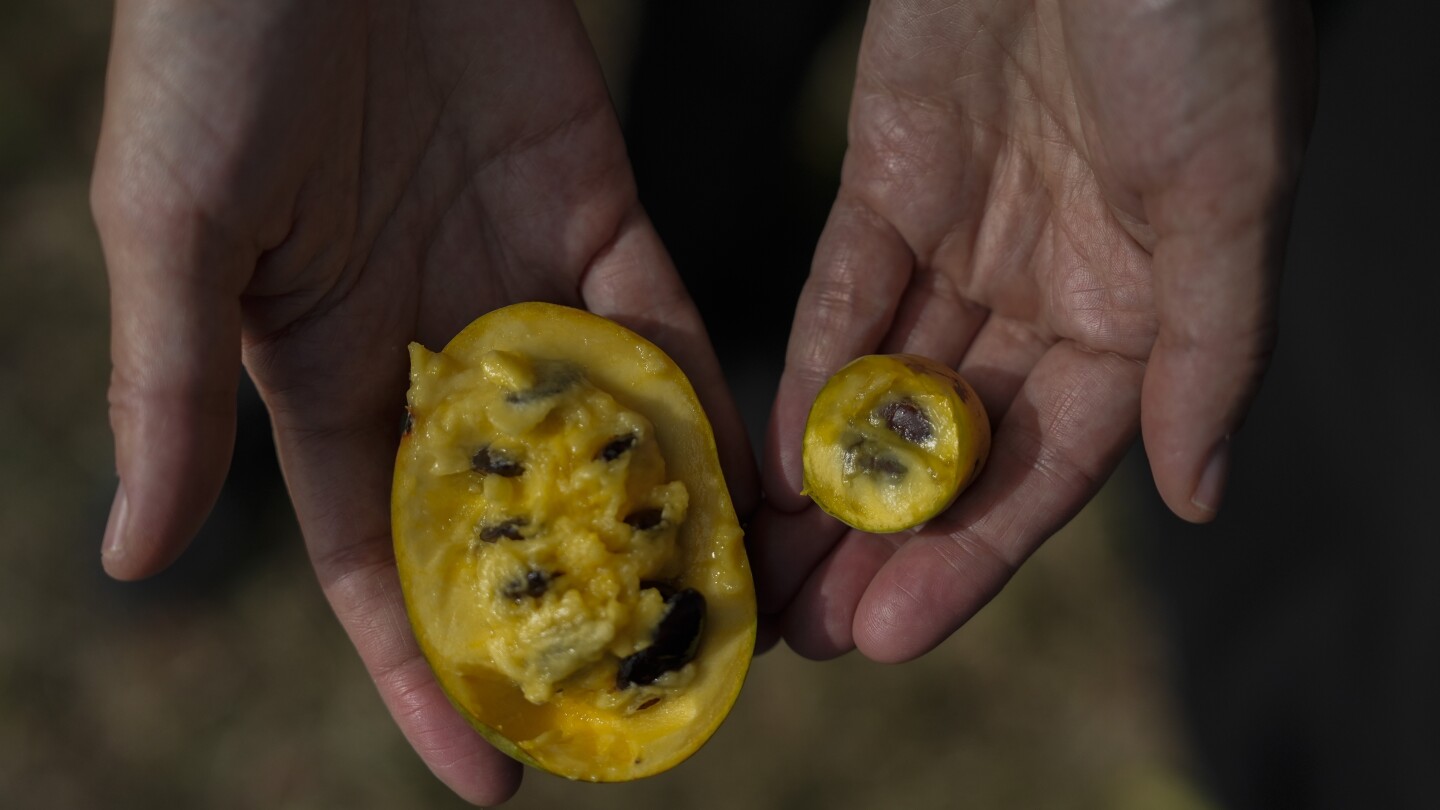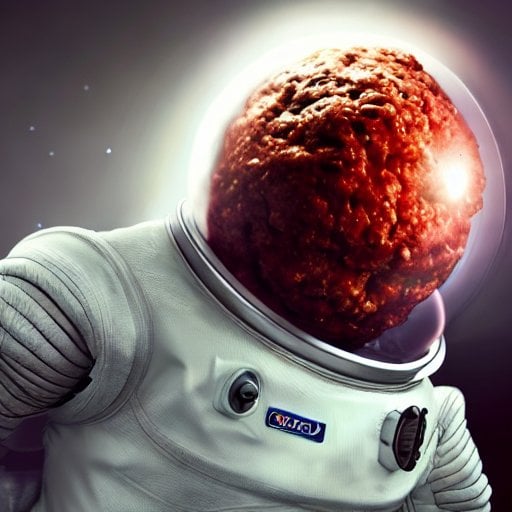WASHINGTON COURT HOUSE, Ohio (AP) — Stubborn drought in Ohio and the shifting weather patterns influenced by climate change appear to be affecting North America’s largest native fruit: the pawpaw.
Avocado-sized with a taste sometimes described as a cross between a mango and banana, the pawpaw is beloved by many but rarely seen in grocery stores in the U.S. due to its short shelf life. The fruit grows in various places in the eastern half of North America, from Ontario to Florida. But in parts of Ohio, which hosts an annual festival dedicated to the fruit, and Kentucky, some growers this year are reporting earlier-than-normal harvests and bitter-tasting fruit, a possible effect of the extreme weather from the spring freezes to drought that has hit the region.
Take Valerie Libbey’s orchard in Washington Court House, about an hour’s drive from Columbus. Libbey grows 100 pawpaw trees and said she was surprised to see the fruit dropping from trees in the first week of August instead of mid-September.
“I had walked into the orchard to do my regular irrigation and the smell of the fruit just hit me,” said Libbey, who added that this year’s harvest period was much shorter than in previous years and the fruits themselves were smaller and more bitter.
Why is it always Ohio.
While we’re on this subject… What exactly are the pawpaw and the prickly pear doing in the middle of the Indian jungle? For that matter, what’s Cousin Louie doing there? How did he end up thousands of miles from Sumatra?
If Baloo was having his fruit imported from the Midwestern U.S., that’s hardly the bare necessities, now is it?
The pawpaw in the Jungle Book is what’s known in the US as papaya. It’s been cultivated in India since at least the 18th century. Likewise prickly pears have been brought all over the world. By the time Kipling wrote The Jungle Book, both fruits were well established in India, just as many old world fruits have made it to the Americas.
You do know that song isn’t in Kipling’s novel, right? It was written by an American songwriter who very likely never even went to India.
I’m well aware. Are you aware that the Kipling novel specifically mentions pawpaw too?
Are you aware that jokes are a thing?
Condescension was such a weird way to respond to my comment in the first place, and I’m sorry I fell for it and responded in the same vein. I should instead have taken the opportunity to point out that in addition to Kipling mentioning pawpaw in the novel, it’s quite possible that Terry Gilkyson had never heard of the American pawpaw either and that the fruit shown in the cartoon movie more closely resembles a papaya than an American pawpaw.
Baloo does own a cargo plane.
Which, again, doesn’t seem like a bare necessity.
Perhaps he was secretly rich, and thusly his esoteric definition was actually an eccentricity.
Look for the eccentricities, the simple eccentricities
Forget about your worries and your strife
I mean the eccentricities, old mother nature’s recipes
That bring the eccentricities of lifeHa!
No one will look back and say there weren’t signs when our planet dies. They’ll finally realize we just ignored them.
Millions of people know and are trying to fight. The real truth is a small number of rich people are actively destroying things faster for profit and power. They are working to stop anyone getting in the the way of that. A good number of them are accelerationist psychopaths who should be removed from any position of power.
Personal responsibility is good and nice, sure. One private jet flight nulls years of work a single person does to right climate change. The target for why things are so bad is very clear and very obvious. Eat the rich
Ignored them and doubled down.
And it’s all these agriculture heavy states that are fighting the hardest.
I have never heard of this fruit.
And I lived in Ohio for almost ten years. What is wrong with me?
You aren’t alone, I’ve never heard of it either. Though it sounds like something worth planting
I’ve only found them in farmers markets in the Midwest. They are DELICIOUS! The article is right, they taste kind like a combination of mango and banana. They have some large seeds you have to eat around, and the skin isn’t super tasty, but the inside is great!
Pro-tip, the ones that look old and brown are the ones that are ripe and ready to eat, the ones that look yellow-green need another day or two to fully ripen.
They are not easy to grow. And they are male and female so you have to have both for fruits. I don’t know the ratio, or much beyond that, I’ve never gotten a pod to sprout…
Guerrilla planting it it is. Why shouldn’t vacant lots have a few of them
I finally managed to try pawpaws this year. It was quite nice in Maryland and they’re all over along riverbanks. They had nearly identical taste and texture to the sweetsops available throughout Asia, just with larger seeds. I have no idea why they’re not widely available, the flavor is sweet and mild like most fruits that are popular in the US.
was it by the Potomac? are they done now?
Not sure, this was 2 weeks ago. Apparently the season was somewhat earlier than normal this year. The C&O Canal trail is the place to go though.
Love me some pawpaws and persimmons.







